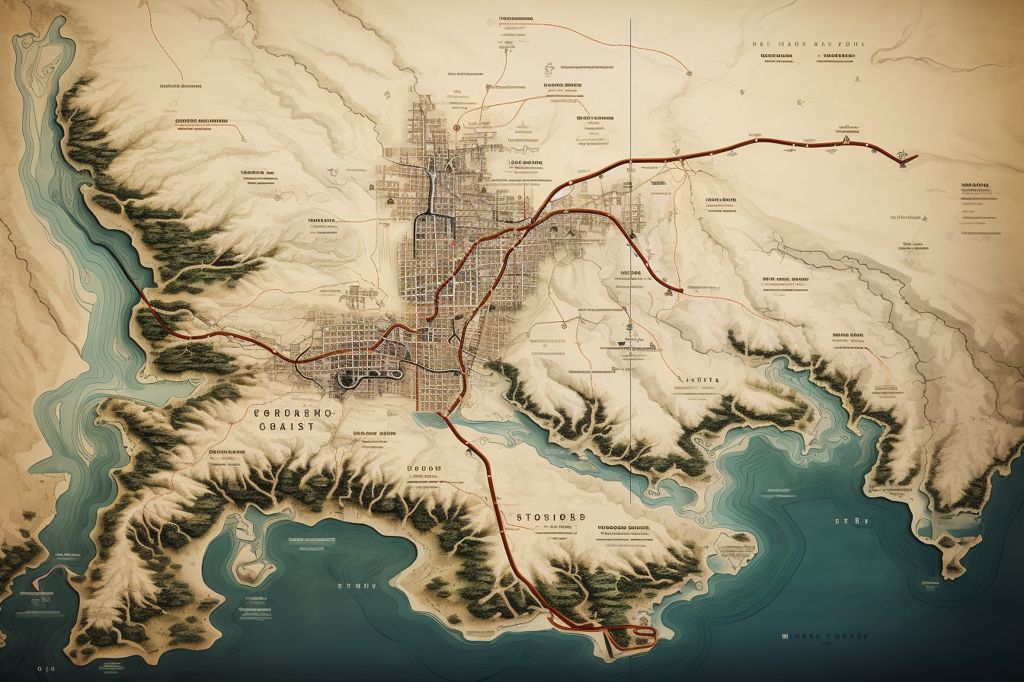The Western Cape has been hit by devastating floods, causing road closures and leaving communities in need of assistance. Travelers planning to visit the region during the upcoming holiday season have been warned to exercise caution and stay informed about road closures and traffic measures. Relief efforts are underway, and residents and visitors are encouraged to donate to local disaster centers and NGOs to support those affected by the floods.
The Western Cape has recently experienced disastrous floods, resulting in damaged roads and communities trying to cope with the aftermath. Government representatives are calling for caution from travelers during the holiday period. Western Cape Minister of Local Government, Environmental Affairs and Development Planning, Anton Bredell, has given an update on the affected regions and communities, emphasizing the need for patience and readiness for those intending to travel during school vacations.
Road Closures and Traffic Measures
A number of roads are currently shut, while others have restricted lane access or stop-go systems in place, which may require travelers to re-evaluate their plans. For example, a stop-go system is in place on the N1 in De Doorns, expected to last for a minimum of three months. Other impacted areas include the N2 near Botriver, the R43 heading towards Villiersdorp, and the R321 from Molteno. Travelers should check the Western Cape Government’s website for the latest information on road closures.
The flooding has also severely damaged water supply infrastructure in Hermanus, leaving the whole community dependent on water trucks and tankers. Minister Bredell suggests that visitors to Hermanus should be mindful of water trucks on the road and bring their own water supply, as well as donating extra liters to help the community.
Communities in Need and Relief Efforts
Cape Town’s municipality has provided an updated count of communities in need, with over 21,000 people and almost 7,000 structures affected by the floods. Assessments are still ongoing for several settlements such as the Covid Settlement, LA Burundi, and Strongyard in Mfuleni. Relief operations are in progress to reach rural communities isolated by destroyed roads, with farm worker families in the Breede River Municipality of particular concern.
Following the severe storm during the long weekend, 16 Western Cape schools are still closed, a considerable reduction from the 39 closed on Tuesday and 21 on Wednesday. Authorities are collaborating closely with schools to ensure reopening as soon as possible, while also encouraging parents to stay in communication with their schools for updates on closures.
Western Cape Minister for Education, David Maynier, expressed appreciation for the efforts made by emergency services, government and NGO partners, and schools in supporting teachers, students, and parents as the area recovers from the devastating storm. Minister Bredell also thanked Eskom for their round-the-clock work to resolve faults and repair damage caused by the extreme weather.
Support from Local Disaster Centers and NGOs
To keep up to date with events in their local area, residents are advised to contact their nearest disaster center. Various NGOs, such as the SA Red Cross Society, Gift of the Givers, Islamic Relief, and Mustadafin are providing support in municipalities like Cape Winelands District Municipality, Overberg District Municipality, Breede Valley Municipality, Drakenstein, and towns in the Langeberg Municipality, including Ashton and McGregor. Assistance also extends to agri-workers and their families, reaching over 186 families and 741 individuals in small towns and farms so far.
Donation collection points have been set up for those who wish to contribute to the communities in need. Necessary donations include blankets, water, dry and non-perishable food, baby food and toiletries, and dignity packs. The SA Red Cross Society has several offices accepting donations, including locations in Wynberg, Greyton, Hermanus, and Knysna.
With the Western Cape struggling to overcome the flood aftermath, travelers are advised to exercise patience, stay informed, and be prepared during their holiday trips. Due to road closures and damaged infrastructure, navigating the area will demand flexibility and consideration for the affected communities that are still working hard to recover.
What is the current situation in the Western Cape?
The Western Cape has recently experienced disastrous floods, resulting in damaged roads and communities trying to cope with the aftermath. Government representatives are calling for caution from travelers during the holiday period.
Which roads are currently closed?
A number of roads are currently shut, while others have restricted lane access or stop-go systems in place, which may require travelers to re-evaluate their plans. For example, a stop-go system is in place on the N1 in De Doorns, expected to last for a minimum of three months. Other impacted areas include the N2 near Botriver, the R43 heading towards Villiersdorp, and the R321 from Molteno.
Where can I find information on road closures?
Travelers should check the Western Cape Government’s website for the latest information on road closures.
Which communities are in need of assistance?
Cape Town’s municipality has provided an updated count of communities in need, with over 21,000 people and almost 7,000 structures affected by the floods. Assessments are still ongoing for several settlements such as the Covid Settlement, LA Burundi, and Strongyard in Mfuleni.
How can I support local disaster centers and NGOs?
Residents and visitors are encouraged to donate to local disaster centers and NGOs to support those affected by the floods. Various NGOs, such as the SA Red Cross Society, Gift of the Givers, Islamic Relief, and Mustadafin are providing support in municipalities like Cape Winelands District Municipality, Overberg District Municipality, Breede Valley Municipality, Drakenstein, and towns in the Langeberg Municipality, including Ashton and McGregor.
What are the necessary donations?
Donation collection points have been set up for those who wish to contribute to the communities in need. Necessary donations include blankets, water, dry and non-perishable food, baby food and toiletries, and dignity packs.
Where can I donate?
The SA Red Cross Society has several offices accepting donations, including locations in Wynberg, Greyton, Hermanus, and Knysna.
What should travelers keep in mind during their holiday trips to the Western Cape?
With the Western Cape struggling to overcome the flood aftermath, travelers are advised to exercise patience, stay informed, and be prepared during their holiday trips. Due to road closures and damaged infrastructure, navigating the area will demand flexibility and consideration for the affected communities that are still working hard to recover.








